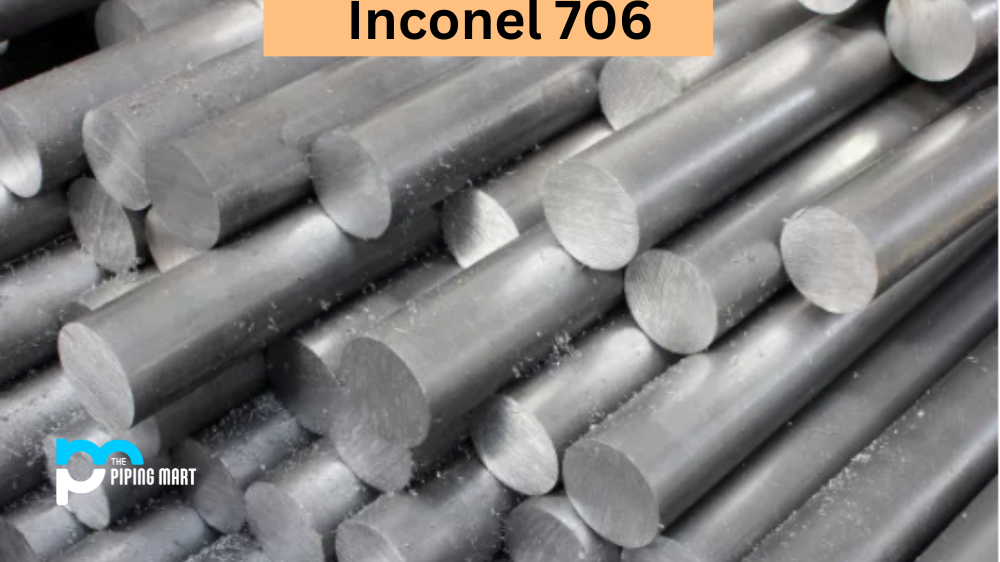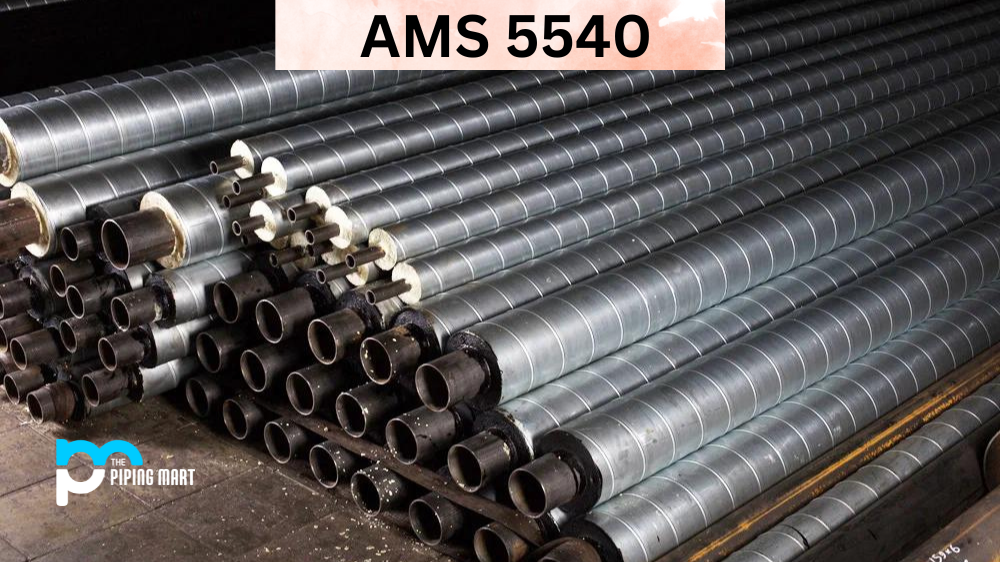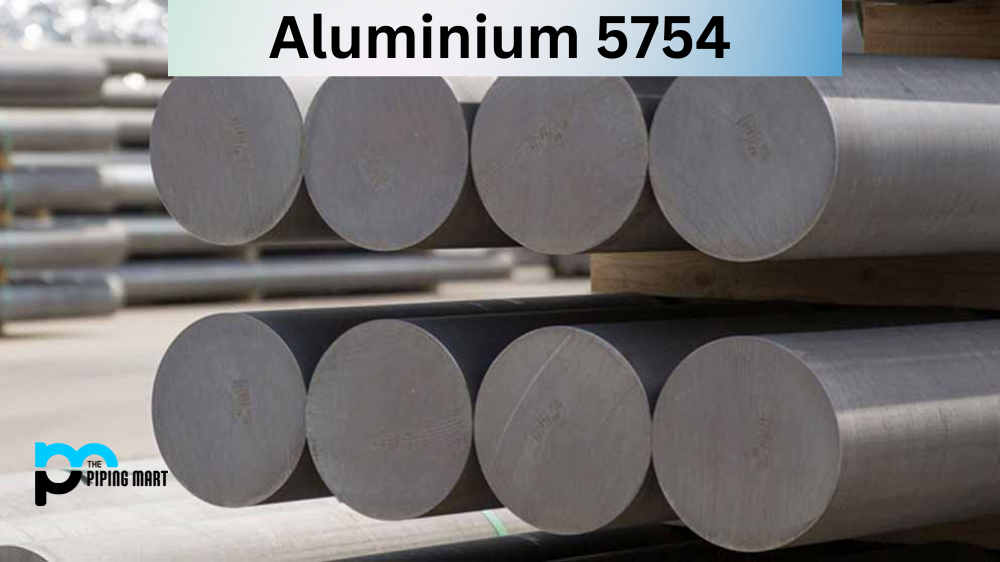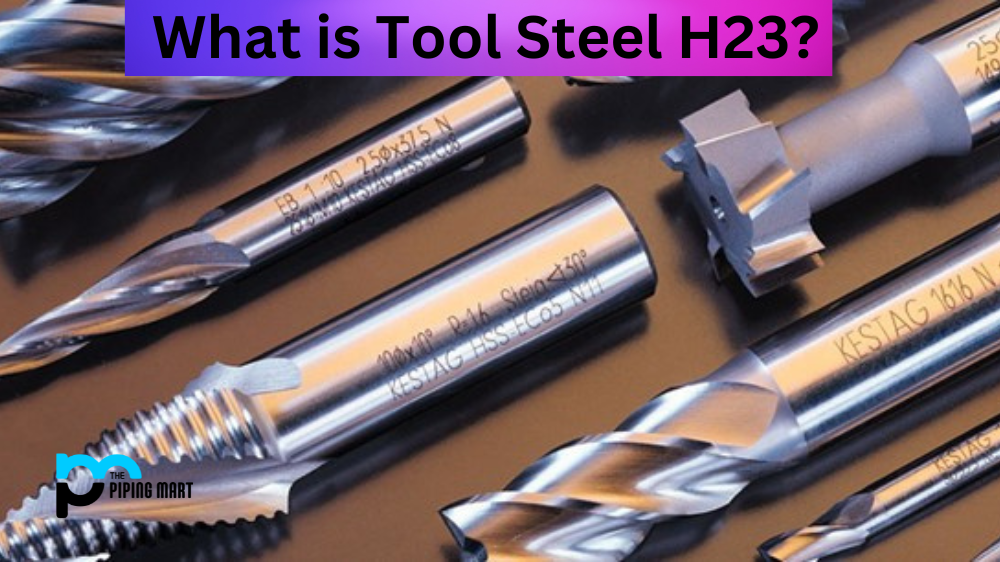If you’re in the market for a high-performance alloy, chances are you’ve heard of Inconel 706. This nickel-based alloy is known for its superior strength and corrosion resistance, making it an ideal choice for a variety of applications. But beyond the basics, what else do you need to know about Inconel 706? Let’s take a closer look at this alloy and explore its composition, properties, uses, and more.
Inconel 706 Composition
UNS N09706 is an austenitic stainless steel alloy with a nominal composition of 68% iron, 22% chromium, 5% manganese, and 3% molybdenum. It also contains trace amounts of carbon, titanium, silicon, and aluminum. The addition of these elements gives the alloy improved formability and weldability compared to other alloys in the same class. Additionally, Inconel 706 has excellent mechanical properties, including high strength at elevated temperatures, as well as good ductility and toughness even at low temperatures.
| Elements | Content (%) |
|---|---|
| Nickel, Ni | 39-44 |
| Iron, Fe | 38 |
| Chromium, Cr | 14.5-17.5 |
| Niobium, Nb | 2.50-3.30 |
| Cobalt, Co | ≤ 1 |
| Titanium, Ti | ≤ 0.40 |
| Copper, Cu | ≤ 0.35 |
| Manganese, Mn | ≤ 0.35 |
| Silicon, Si | ≤ 0.35 |
| Carbon, C | ≤ 0.30 |
| Aluminum, Al | ≤ 0.060 |
| Phosphorous, P | ≤ 0.020 |
| Sulfur, S | ≤ 0.015 |
| Boron, B | ≤ 0.0060 |
Inconel 706 Chemical Properties
UNS N09706 is an emerging alloy in the chemical industry, and it has some impressive properties that make it suitable for a variety of uses. This nickel-iron-chrome-based alloy has excellent corrosion, oxidation, and heat resistance, making it ideal for use in environments that experience severe temperatures and high levels of acidity or causticity. Additionally, Inconel 706 has very good mechanical properties, with excellent yield and tensile strength at even high-temperature conditions. These properties open up possibilities for its use in fields such as heat exchanging systems, exhaust systems on machinery and airplanes, as well as general chemical processing equipment. With these factors in consideration, Inconel 706 is proving to be a reliable material in modern chemical equipment design.
Inconel 706 Mechanical Properties
UNS N09706 is a high-temperature alloy with remarkable mechanical properties. With its superior strength-to-weight ratio, it is incredibly versatile and can be used in many applications, often requiring a combination of high strength and resistance to general corrosion. Its ability to withstand rapid temperature changes makes it ideal for jet engines and other applications where heat is a factor. Plus, Inconel 706 has proven ductility and can be formed into virtually any shape while maintaining its tensile strength. The alloy’s exceptional performance means that parts made from Inconel 706 require less maintenance over their lifetime, saving valuable time and money in the long run.
| Properties | Metric | Imperial |
|---|---|---|
| Tensile strength | 757 MPa | 109800 psi |
| Yield strength (at strain 0.200%) | 383 MPa | 55500 psi |
| Poisson’s ratio (precipitation hardened, calculated by mfr) | 0.382 | 0.382 |
| Modulus of elasticity (precipitation hardened, dynamic method) | 210 GPa | 30500 ksi |
| Elongation at break | 47% | 47% |
Inconel 706 Physical Properties
UNS N09706 is a nickel-iron-chromium alloy known for its superior physical properties. It offers exceptional corrosion resistance, high strength at elevated temperatures, and outstanding creep resistance. In extreme situations such as chemical processing, aerospace engineering, and nuclear activities, Inconel 706 can remain durable. Furthermore, it exhibits excellent mechanical toughness and excellent weldability, making it perfect for components with complex shapes and tight tolerances. Despite its extensive list of advantages, the alloy does not perform well in cyclic applications due to precipitation hardening during exposure to thermal cycles. For this reason, it has limited applications in aircraft turbine engines. In sum, Inconel 706 is an excellent choice when parameters of the life cycle, temperature range, and corrosion resistance all must be closely maintained.
| Properties | Metric | Imperial |
|---|---|---|
| Density | 8.05 g/cm³ | 0.291 lb/in³ |
| Melting point | 1360°C | 2480°F |
Inconel 706 Thermal Properties
| Properties | Metric | Imperial |
|---|---|---|
| Thermal expansion co-efficient (at 24-100°C/75.2-212°F) | 13.46 µm/m°C | 7.478 µin/in°F |
| Thermal conductivity | 12.5 W/mK | 86.8 BTU in/hr.ft².°F |
Inconel 706 Equivalent
- AMS 5605
- AMS 5606
- AMS 5701
- AMS 5702
- AMS 5703
Inconel 706 Uses
It is often used for components such as shafts, fasteners and bolts that are exposed to extreme environments or exposure to aggressive chemicals like acids or alkalis. It can also be used in applications where high-temperature performance is required, such as turbines or furnaces. Additionally, because of its superior corrosion resistance properties, it is often used in saltwater environments or other harsh marine conditions like oil platforms or deep-sea pipelines.
Heat Treatment
Inconel 706 is an ideal material for heat treatment. Its unique blend of iron, nickel-chromium-cobalt, and molybdenum gives it the perfect balance of strength, corrosion resistance and stress relaxation capabilities. Its ability to withstand extreme temperatures makes it suitable for numerous industrial applications such as petrochemical plants or aerospace parts. When heat is treated properly with different methods such as age hardening, solution annealing, sputtering or precipitation hardening, the metal product made out of Inconel 706 can be further enhanced in many ways, including increased strength and durability. This property makes it one of the go-to materials when dealing with temperature-sensitive components or products in industries that require higher levels of corrosion resistance.
Corrosion Resistance
Due to its superior strength and corrosion resistance properties, Inconel 706 is used in many industries, including aerospace, automotive and power generation.
Heat Resistance
In addition to its excellent mechanical properties, Inconel 706 also has good heat resistance properties making it suitable for use in high-temperature applications such as turbines or furnaces where thermal cycling occurs frequently.
Machining
It has good machinability allowing it to be machined easily into intricate shapes without sacrificing too much material integrity during the process.
Welding
Finally, when welding this material, it should be done with caution as it can be prone to cracking if not done correctly, so make sure you have an experienced welder on hand when attempting this process with your Inconel 706 components.
Conclusion
In conclusion, Inconel 706 is an incredibly versatile alloy that offers superior strength and corrosion resistance even in extreme environments or harsh chemical exposures, making it ideal for use in many industries, from aerospace to automotive engineering. Its exceptional mechanical properties make it suitable for use in high-temperature applications, while its good machinability allows intricate shapes to be created without sacrificing too much material integrity during the process. Finally, when welding this material, caution needs to be taken due to potential cracking, so ensure that only experienced welders are working with your components if welding is required during the fabrication processes. All things considered, though, Inconel 706 remains one of the most popular alloys on the market today due to its wide range of advantageous features, so consider using this material when designing your next project!

Abhishek is a seasoned blogger and industry expert, sharing his insights and knowledge on various topics. With his research, Abhishek offers valuable insights and tips for professionals and enthusiasts. Follow him for expert advice on the latest trends and developments in the metal industry.




